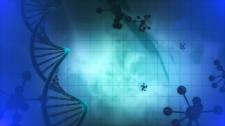Do Your Family Members Have a Right to Your Genetic Code?
By Emily Mullin,
MIT Technology Review
| 11. 22. 2016
When a woman gets her genome sequenced, questions about privacy arise for her identical twin sister.
In August 2015, Samantha Schilit went to her primary care doctor to get a blood draw. A PhD candidate at Harvard specializing in human genetics, she was itching to unlock the secrets of her genes with a test called whole-genome sequencing, which provides a full readout of a person’s DNA.
Patients must give their informed consent before undergoing whole-genome sequencing or any other genetic test. But there are no laws that restrict what patients can do with their own genetic information, or that require patients’ family members to be involved in the consent process. This raises questions about who owns an individual’s genetic code, since family members share many genetic traits and may harbor the same genetic abnormalities associated with certain diseases.
When Schilit got her test results back a few months later, she didn’t consider that her identical twin sister Arielle Schilit Nitenson, a PhD student in neuroscience at Brown University, would have concerns about the test. The two co-authored an article in...
Related Articles
By Josie Ensor, The Times | 12.09.2025
A fertility start-up that promises to screen embryos to give would-be parents their “best baby” has come under fire for a “misuse of science”.
Nucleus Genomics describes its mission as “IVF for genetic optimisation”, offering advanced embryo testing that allows...
By Hannah Devlin, The Guardian | 12.06.2025
Couples undergoing IVF in the UK are exploiting an apparent legal loophole to rank their embryos based on genetic predictions of IQ, height and health, the Guardian has learned.
The controversial screening technique, which scores embryos based on their DNA...
By Frankie Fattorini, Pharmaceutical Technology | 12.02.2025
Próspera, a charter city on Roatán island in Honduras, hosts two biotechs working to combat ageing through gene therapy, as the organisation behind the city advertises its “flexible” regulatory jurisdiction to attract more developers.
In 2021, Minicircle set up a...
By Vardit Ravitsky, The Hastings Center | 12.04.2025
Embryo testing is advancing fast—but how far is too far? How and where do we draw the line between preventing disease and selecting for “desirable” traits? What are the ethical implications for parents, children, clinicians, and society at large? These...




